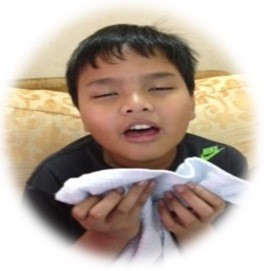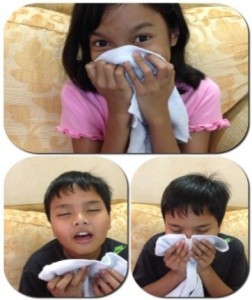Allergic rhinitis is much under-rated and this has a great impact on the quality of life in those who are affected. Due of its close association with asthma, these two conditions when often present together in many children. Thus, this can further worsen the person’s quality of life and indirectly also affecting socio-economic well-being.
Prevention
The first important step to prevent allergic rhinitis is to avoid the allergen. However, this does not always completely possible and thus medication are usually needed to control the symptoms.
The following steps should be undertaken in order to control your allergies rhinitis;
- Allergen avoidance
- Pollen and outdoor moulds
- Keep windows closed during seasons when pollen and mould counts are the highest
- Avoid sources of moulds (wet leaves, garden debris)
- Use air conditioning, if possible
- Use face masks and sunglasses when moving out during pollen season
- House dust mites
- Encase your mattress and pillows in a mite impermeable casing
- Wash your bed covers, clothes, and stuffed toys once a week in a hot water (55F)
- Remove carpets
- Avoid sleeping or lying on upholstered furniture
- Animal danders
- Remove the animal from the house
- If you have a pet, keep the pet out of your bedroom at all times
- Wash the pet weekly
- Avoid products made of feathers
- Use a vacuum cleaner
- Cockroach allergen & indoor moulds
- Use insect sprays but have someone else spray it while you are outside the home
- Stay out of the home for a few hours after spraying
- Keep bathrooms, kitchens, and basements clean and well-aired
- Look for moulds around the sink, garbage cans, and the refrigerator and keep these areas clean
- Medications
The medications can be taken by oral nasal spray. There are generally 4 type of medication. Some of the patients will need a combination of these medications in order to get good control.
- Anti-histamines – block the action of histamine. They are more effective when taken regularly rather than when the symptoms are severe. Anti-histamines are effective in reducing nasal symptoms of itching, sneezing and runny nose but are not very effective for reducing nasal congestion (stuffy nose).
- Topical nasal steroids – help to reduce inflammation in the nose. Nasal steroids provide relief from sneezing, runny nose and nasal itching. For allergic rhinitis, these compounds are administered as nasal sprays.
- Decongestions – give quick relief but in a short-term period for nasal congestion. Many decongestions promote histamine release and this can cause a ‘rebound’ effect that make the nose even more congested than before. Therefore, topical decongestions should not be used for more than 10 days at a stretch.
- Anti-cholinergics – are useful only in the case of a runny nose which is uncontrolled by other medications like anti-histamines and topical nasal steroids.
- Anti-leukotrienes – help to reduce inflammation in the nose and lower airways, are effective in asthma as well as rhinitis are therefore an important safe and effective therapy for patients who have both rhinitis and asthma.
- Immunotherapy
Allergen immunotherapy, or allergy vaccines also known as “allergy shots”, may be recommended for persons who do not respond well to treatment with medications, experience side-effects from medications or have long – term allergen exposure that is unavoidable.
An immunotherapy treatment program consists of injections of a diluted allergen extracts, administered frequently in increasing doses until a maintenance dose is reached. Immunotherapy should be administered by a trained specialist.
- Surgery
Surgery is indicated in selected cases of severe nasal blockage when do not improve with medications or immunotherapy.
| Last Reviewed | : | 17 October 2013 |
| Writer | : | Dr. Noor Hafiza bt. Noordin |
| Reviewer | Dr. Ahmad Fadzil Abdullah |
 PENDIDIKAN PESAKIT Kementerian Kesihatan Malaysia
PENDIDIKAN PESAKIT Kementerian Kesihatan Malaysia


